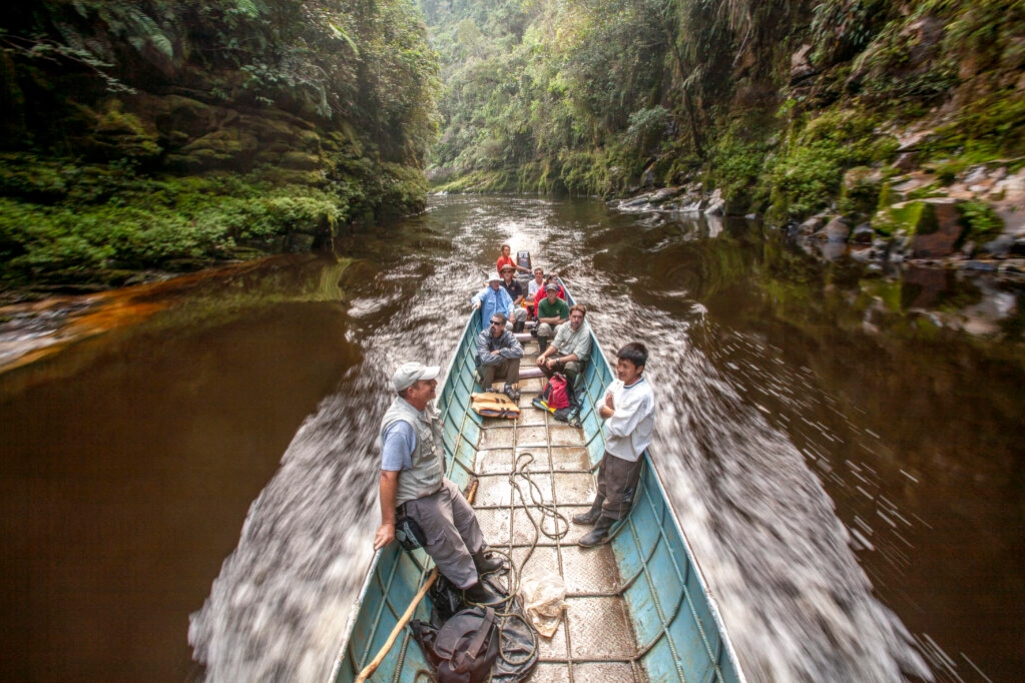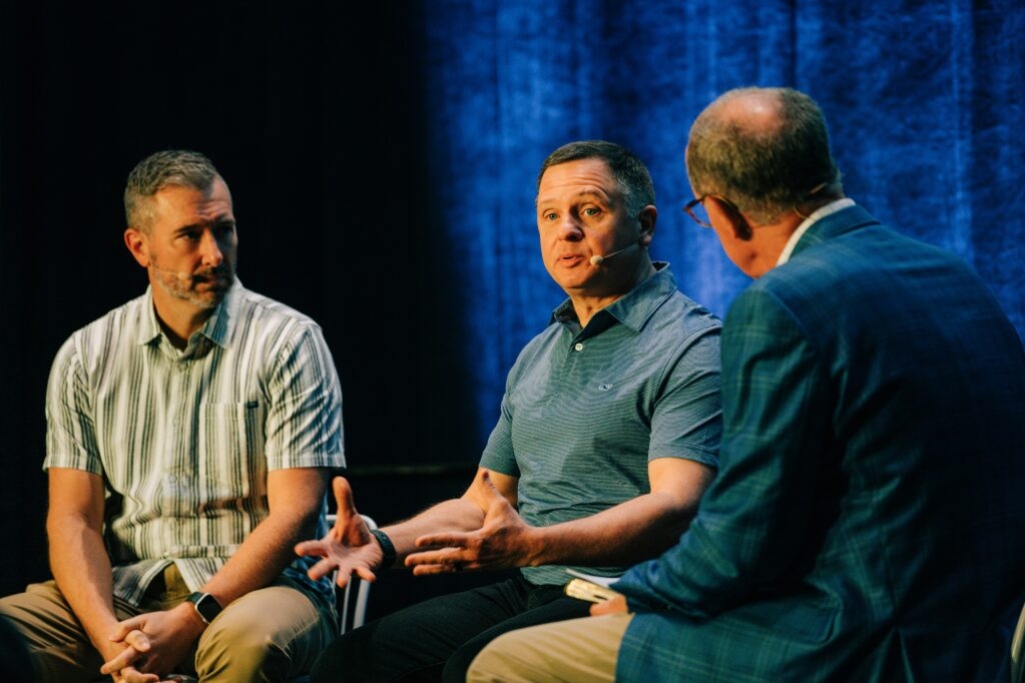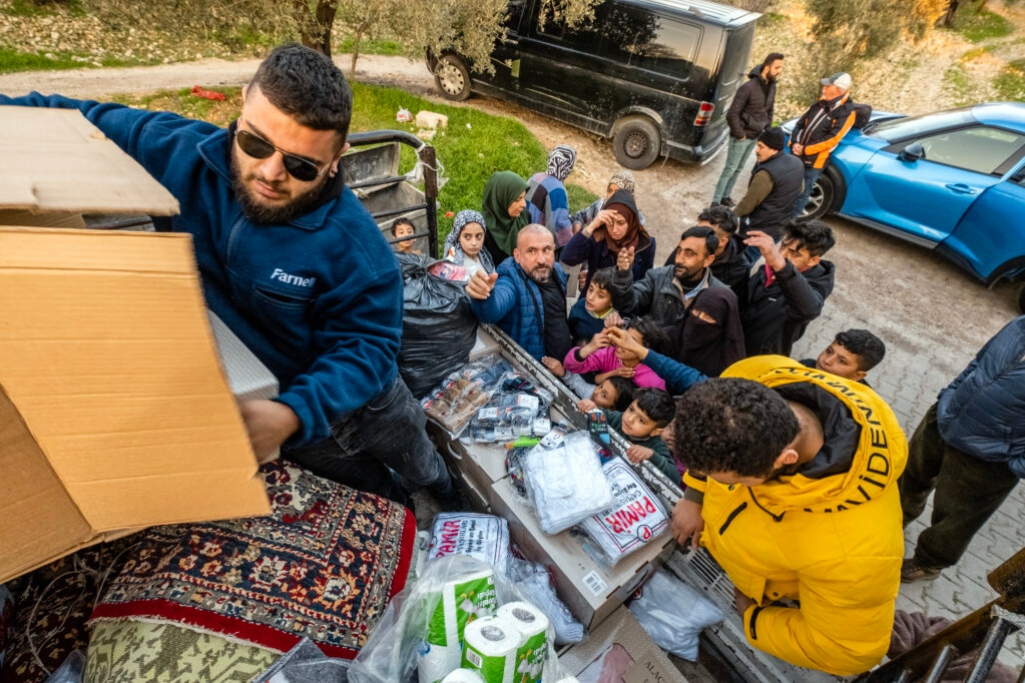
While riding a boat up a tributary of the Amazon Basin, an IMB missionary talks with a village leader from the Shuar people group about his culture. A volunteer team joins the missionary and leader on the trip.
The COVID-19 pandemic created short-term challenges for Southern Baptist mission efforts. But it included the opportunity to re-assess missiological practices while encountering a world re-awakened to its mortality and eternal matters.
No SBC entity faced trickier maneuvering in the late winter and spring of 2020 than the International Mission Board. As COVID rates soared and lockdown mandates varied from country to country, logistics became quite the challenge.
“The most significant impact [was] restricted movement,” said Julie McGowan, IMB spokesperson. “We endeavor to get to lostness every day, to take the Gospel to the people and places where Jesus has not been named.
“We were hindered for a time in sending personnel to their new assignments or in getting them back to their existing places of service. At varying degrees, workers were restricted locally to move about in their places of service (due to lockdowns) or to venture out to those next places which they had identified as part of their strategic outreach plans.”
But those challenges brought forward positive developments, she added, including “greater dependency on Him, deeper connection to the communities and people right where workers live, learning to harness the power of technology in new ways, and increased prayer, just to name a few.”
Getting creative closer to home
A general sense of wait and see affected entities and churches alike.
By January 2020, Matt Hadden and others around Porcupine, South Dakota, had been providing several ministries for Pine Ridge Indian Reservation residents. A signed contract for their 150-acre ranch to become a Send Relief center promised new horizons.
Roofing and other materials arrived March 18, with mission teams scheduled for construction projects. By March 20, everything had been shut down. Hadden, associate pastor of Creator’s Fellowship in Porcupine, couldn’t even leave the reservation without a permit.
One morning, tired of waiting, he started framing out a building himself. Friends joined in the coming days. It was still ministry, but different than the grind he’d felt in previous years.
“It was a different kind of speed,” Hadden said. “There weren’t volunteers coming in, people we weren’t ministering to directly. We were just working around the property and with my family.”
Ministry goes on
Prior to the pandemic, it wasn’t unusual for Grand Avenue Baptist Church in Fort Smith, Arkansas, to take 20-25 mission trips a year.
“COVID pretty much shut us down,” missions minister Scott Ward told Baptist Press last year.
The church continued with some mission trips later in 2020, then took only one out of state in 2021. A few more were added in 2022.
“COVID certainly interrupted our plans,” Ward said. “But it benefited us in that it forced us to really work hard on our local mission efforts.”
High View Baptist Church in Woodland Park, Colorado, had active missional partnerships in Asia and Greece that were immediately placed on hold due to the pandemic.
“We’re a fairly small church, but missions has been a tremendous blessing here,” said Pastor Steve Allen. “We designate a pretty big amount toward missions and try and make it to where if you want to go, we’ll offset your cost to make it affordable.”
Some members came home from Asia in October 2019 with flu-like symptoms. COVID wasn’t in the headlines yet, so there was no reason to expect a planned March 2020 trip to be canceled.
The church has yet to return, though its work in Greece continues. A ministry opportunity in Vietnam is under consideration.
The Georgia Baptist Mission Board was in the process of building a new, expanded missions strategy when COVID changed the state convention’s plans. In addition to focusing on six zip codes in the state exhibiting extreme lostness, partnerships were also established with six state conventions and six countries—Ecuador, Peru, Argentina, Nicaragua, Guatemala, and Colombia.
“All of our Central and South American trips were canceled,” said Buck Burch, GBMB missions catalyst. “Even planned trips to partner states were canceled or postponed. It took two years to recover trips to New York City, as they were hit really hard.”
Like everywhere else, remote work became crucial to continue fostering missional opportunities as well as establish new ones.
“Our partnerships remained with online support,” said Burch, noting that partnering states had access to Georgia Baptist IT support and COVID-related resources. “We also continued to have online meetings with international partners to stay up to date and pray with them.”
Travel fell by more than 65 percent in the first half of 2020 and practically came to a halt in April, the International Monetary Fund reported. Other recent worldwide events such the global financial crisis (travel down 8 percent) and the 2003 SARS epidemic (down 17 percent) didn’t come close.
In the United States, the Northeast witnessed the biggest decline in travel. Four of the conventions with whom Georgia partners—New York, Michigan, New England, and Pennsylvania/South Jersey—were among them.
‘Renewed urgency’
When compared with how it forced on-the-fly adjustments three years ago, COVID’s long-term impact depends on the ministry setting.
“As we enter 2023, COVID-19 has minimal impact in IMB’s procedures,” McGowan said. “We still must follow any travel restrictions or requirements for entering countries.”
Meeting vaccination requirements for entering a country has always been part of IMB protocol, and COVID was no different. The COVID vaccine is no longer mandated for IMB workers, say leaders, and no other vaccine requirements have been changed because of the pandemic.
Most of the restrictions on missionaries’ travel and local movement have been lifted. But COVID’s biggest impact, McGowan said, is more difficult to measure.
“Missionaries gained a renewed understanding of the urgency of the missionary task,” she said. “We never know what could unexpectedly impact our work at any time, so we make every moment count as we address the world’s greatest problem: eternal lostness.”
IMB workers serving overseas “continue to grow in greater dependency on God, nurturing those connections made with the communities and people closest to where they live, using technology more effectively and increasing their prayers,” McGowan said.
Missionaries have seen a similar awakening among those they’re attempting to reach.
“ . . . In the face of horrific deaths and suffering among families and neighbors, many are seeking life’s meaning and responding to the hope found in Christ alone,” McGowan said.
Believers still heeding the call
Church members are responding in like mind. Grand Avenue Baptist has rebounded to pre-COVID levels in terms of missions participation and is expected to take 20-25 trips this year.
“We are actively recruiting for them right now,” Ward said. “All indications seem to suggest that we will fill these trips up.”
In-person contacts and training through the Georgia Baptist Mission Board didn’t resume until the fall of 2021. International travel returned in earnest in February 2022.
COVID also hit churches and other organizations financially, which in turn impacted missions.
“We recognized that a pandemic would affect missions giving, so we had to make spending adjustments,” Burch said.
But the work continued. In 2022, the GBMB sent 408 people through vision or mission trips to each national and international missions partner. Crossover-style evangelistic events in Columbus and Augusta yielded 102 salvations.
COVID brought its obvious share of negatives, but the forced pause also included positives.
“Overall, it was a time to kind of catch our breath,” Hadden said. “Our ministry had been growing so fast the last several years that I hadn’t slowed down at all. My family and I took a three-month sabbatical, which was long overdue.
“The Lord allowed us to do that, and I’m grateful for it.”
(EDITOR’S NOTE – Scott Barkley is national correspondent for Baptist Press.)


